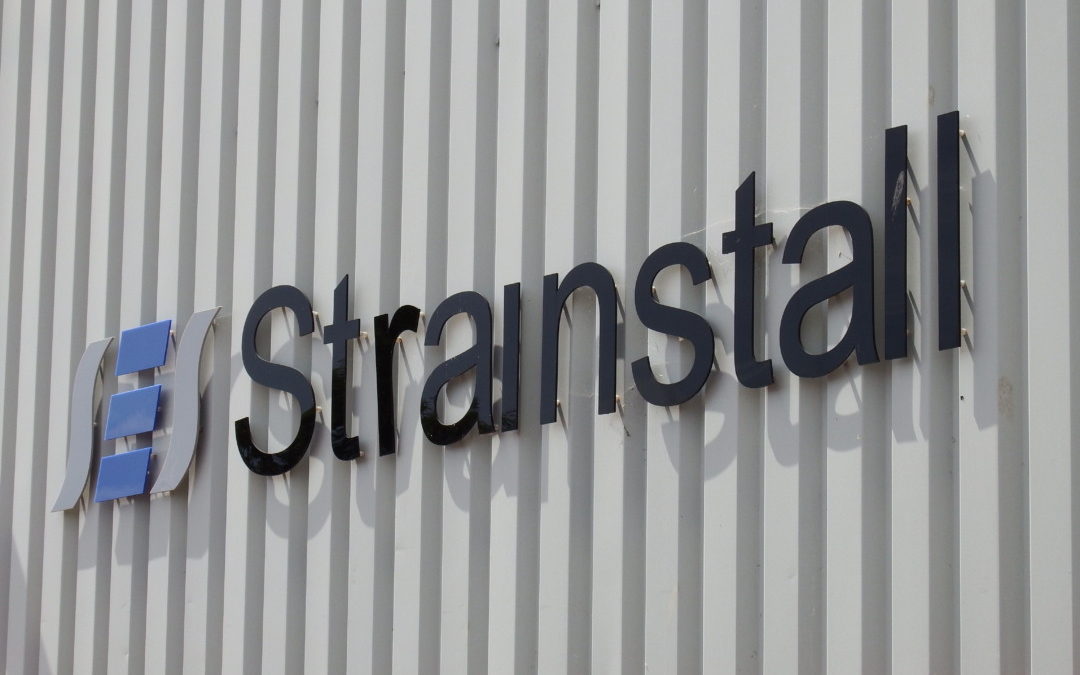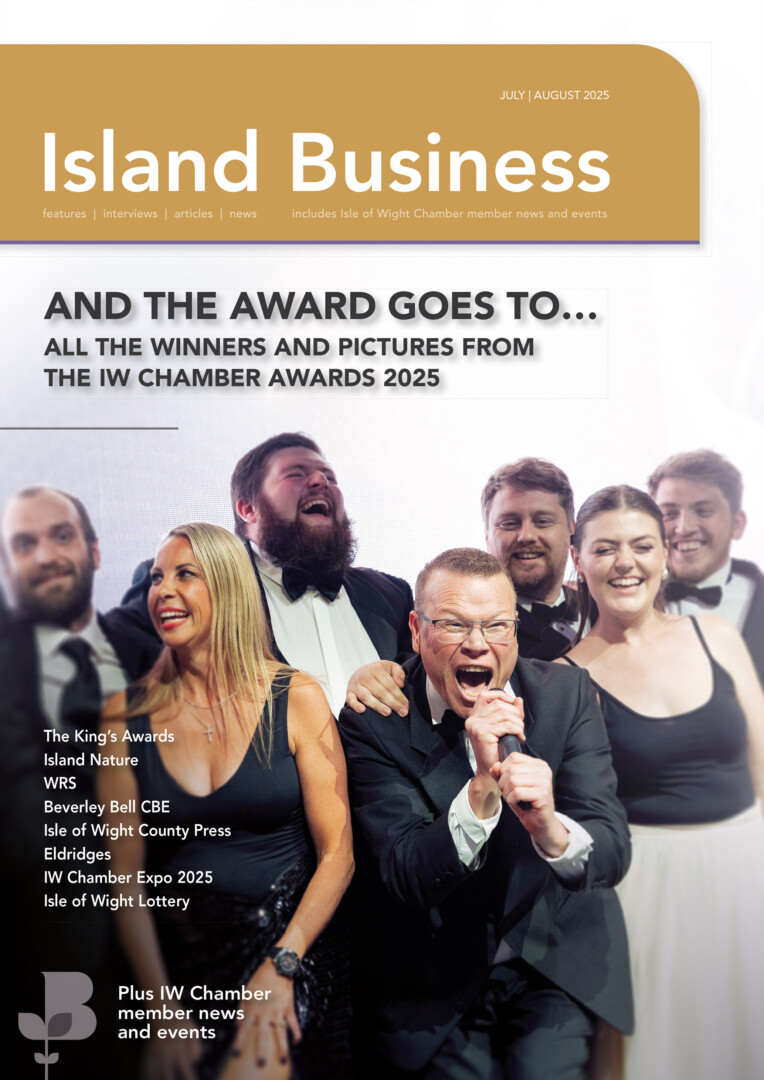Strainstall celebrates its fiftieth birthday this year but they aren’t looking back. The Cowes based company has doubled in size in the last five years. Tom Stroud pays them a visit.
Strainstall design and manufacture monitoring systems and load cells for use at sea and in hazardous areas. The company was formed in Cowes in 1965, and today is based at Mariners Way, employing more than 85 people. Strainstall’s clients are from across the globe and a range of sectors, including fuel giants like Hess, Shell and BP. Offshore oil and gas installations are key, along with sea vessels, buoys or platforms, “anything that floats basically”, as Managing Director Simon Everett explains. He joined the company four years ago, moving to the Island from Yorkshire, transferred from another business also owned by parent company James Fisher and Sons plc.
“We’ve been very successful in the last few years,” Simon says. “A lot of our investment is starting to come through and we’ve launched a lot of new products in the last 18 months. Business is going very well. Strainstall has been around for 50 years and has been successful for a long time. We’re far more efficient now than we were and we’ve developed technologies that are genuinely industry leading. Strainstall has always had a history of doing that and we’re now back at the forefront of the industry again.”
More than forty years after Strainstall was established it was acquired by the James Fisher and Sons plc group of companies, that collectively make up the UK’s leading marine services provider, operating internationally, in markets ranging from marine to defence and nuclear. A year later, in 2007, the business relocated to Mariners Way in Cowes. The new ownership provided the catalyst for the business to grow and evolve.
“Strainstall literally were pioneers in the early days,” Simon says, “but when it was privately owned there were limited funds available to invest in developing products and technology. When it was acquired by James Fisher there was the opportunity to bring things forward. It was a great business, in terms of the foundations – technically strong with good people, but with the potential to do much more. It had been doing similar things for quite a while and perhaps hadn’t broadened its horizons to utilise the technical capabilities to grow and develop the business. I think a lot of people here were keen to have some change.”
Strainstall’s recent success is intrinsically linked with Scotload, an Aberdeen based company acquired in 2008. The two operations overlapped in some areas so both companies were refocused. Scotload uses innovative new load monitoring technology along with standard products that can be sold quickly, off the shelf, with a large stock for sale or hire. All of that technology was developed in Cowes by Strainstall, which has now become an engineering centre of excellence for the group. Today there are over 100 people employed across the business with around 85 people working in Cowes, numbers which have doubled since 2011. There’s a facility at Bembridge too, established in 2012, with up to five people manufacturing products that used to be outsourced to a third party in Belgium.
“We focused on new technology and we invested,” Simon explains. “We refreshed and developed new product lines and grew the engineering capability of the business. We also realised that we had the capability to produce more than just load cells. The team had a significant amount of experience with software systems. We now provide a ‘turnkey’ offering, with load cells as well as a monitoring system to go with it, which has enabled quite a lot of growth.”
These days the Cowes team works increasingly closely with customers and their engineering teams to develop solutions together. Most of their clients are outside of Europe, with the vast majority outside of the UK. It’s a contradiction that many Island companies face – they’re big Isle of Wight employers who are renowned internationally, but who have a relatively low profile in their local marketplace.
“We have virtually no customers at all on the Island,” Simon says. “We occasionally collaborate with companies here who work in the marine sphere. We do try and utilise Island suppliers, for no other reason than that it makes commercial sense. We like to support island companies and we do have a range of specialist engineering companies here that we have found to be very competent and very helpful. We do have quite a number of regular suppliers here now, which we have found very beneficial.”
Recruitment can be very difficult too, often depending on the nature of the role and the timing of the appointment. Filling senior roles can present particular challenges.
“It’s hit and miss. At the moment though everyone employed on the Island lives here too. We prefer it that way, as commuting from the mainland isn’t really sustainable long term. We do have people that relocate to the island. People ether really want to come here because of the sailing, the lifestyle and the environment, or they really don’t want to come here because of the ferries and the separation. The people that do come typically stay. The challenge is convincing them in the first place.”
Simon is keen to develop staff within the business wherever possible. Strainstall takes on graduates and currently has five apprentices, sourced with the support of the IW College. There’s also no danger of the business relocating to the mainland. Even though the other sites run by the parent company are all off-island, Simon categorically rules out ever leaving.
“It would be madness to move the business off the Island. The business was set up here by accident, in some senses, in that it was a spin-out from Saunders Roe. It doesn’t actually need to be based on the Island but there’s no benefit to moving it elsewhere. Without the people we have here, we haven’t got a business. We’re about capability, skillsets and experience. If we were to move the business off the Island we’d lose most of the people. If anything, the Island is actually a bit of a draw for overseas customers who want to come and see us! People have come from China, the US, South America and Africa. We show them the Island and it can be a useful experience to get deals closed and to entice people to visit us.”
Despite his Yorkshire roots Simon is proud to live and work here. He sees Strainstall as part of a larger sector of specialist manufacturers which the Island can be very proud of. If you’d told him that four years ago though, he might not have believed you.
“When I first came to the Island I naively assumed that Strainstall was an oddity, an engineering business plonked on an island which was full of tourists and farmers. How wrong I was! There’s a tremendous number of very niche, very capable engineering companies on the Island. There’s useful learning to be had and we can share insights, skills and experience. People on the Island are helpful.”
Strainstall’s recent growth has been huge. The workforce has doubled in five years which means that their sizable building is now getting “quite cramped” at times. That growth looks set to continue and Simon is optimistic about the future. He’s also keen to improve Strainstall’s industry profile as well as productivity.
“The challenge for us is that people don’t always know what we do and our work is quite bespoke in nature. Customers often don’t realise the extent to which we can help them. We’re in the right markets and we do have a continuous development plan. James Fisher as a company are very supportive of what we’re trying to do here and they have a very hands-off approach. They facilitate and help. They like the business to be entrepreneurial, but with financial support from them. We’ve been able to invest in the business and grow it for the future and the foundations are there for some good times ahead.”
First published in the September 2015 issue of Island Business magazine.



